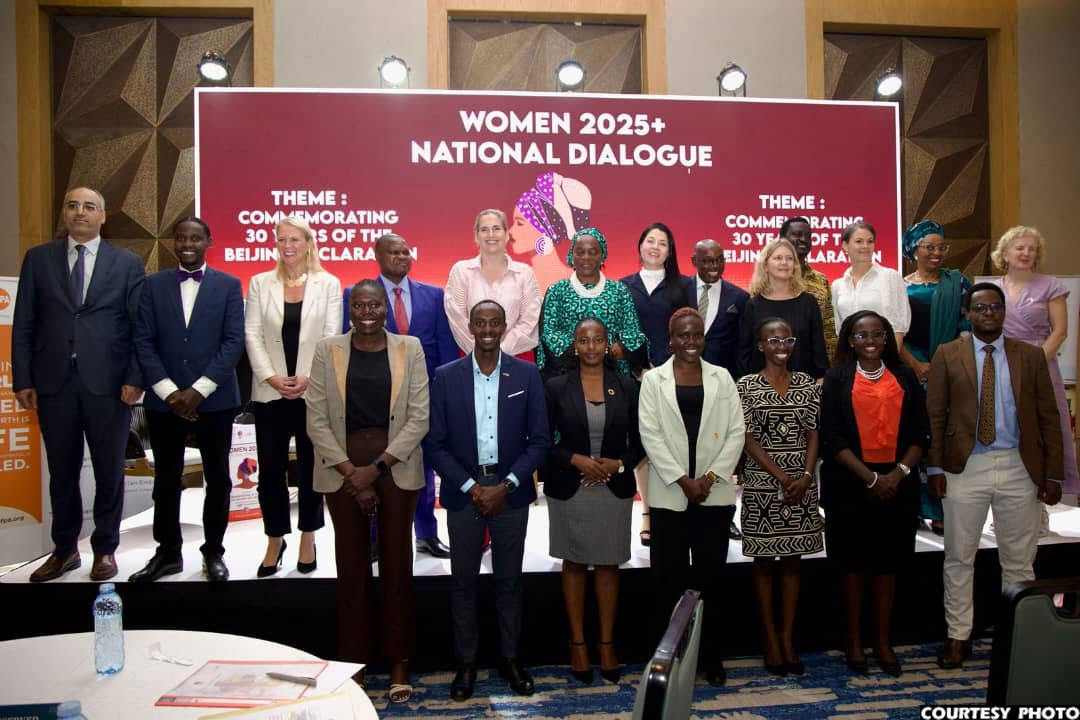Zeija joins Mutuuzo, envoys in push to end social injustices against women
Deputy Chief Justice Flavian Zeija warns that violence against women is not only a criminal matter, but also a violation of human rights.
The Women Uganda 2025+ National Dialogue was convened by the Austrian Embassy, Faraja Africa Foundation and UNFPA Uganda. (Courtesy photo)
_________________
SOCIAL JUSTICE
Uganda's Minister of State for Gender and Culture, Peace Mutuuzo, Deputy Chief Justice Flavian Zeija, and a coalition of foreign envoys have called for urgent action to dismantle harmful cultural and social practices that continue to deny Ugandan women and girls their rights.
Delivering the keynote address at the Women Uganda 2025+ National Dialogue in Kampala, Mutuuzo said Uganda stands “at a pivotal crossroads, ready to accelerate our journey towards a more gender-equitable future”.
She warned that “female genital mutilation [FGM], early pregnancy and child marriage remain ingrained within our cultural practices”, and decried the growing resistance to women’s economic empowerment.
“Some men still fight to stop women from owning land or high-value crops like coffee and cattle,” said Mutuuzo. “Yet we all stand to benefit when women and girls enjoy their rights and live free, dignified lives. This is not going to remain a legislative issue—it’s going to be sunk into the brains and minds of the people at the village level.”
RELATED: 'We need to reconfigure our social protection systems'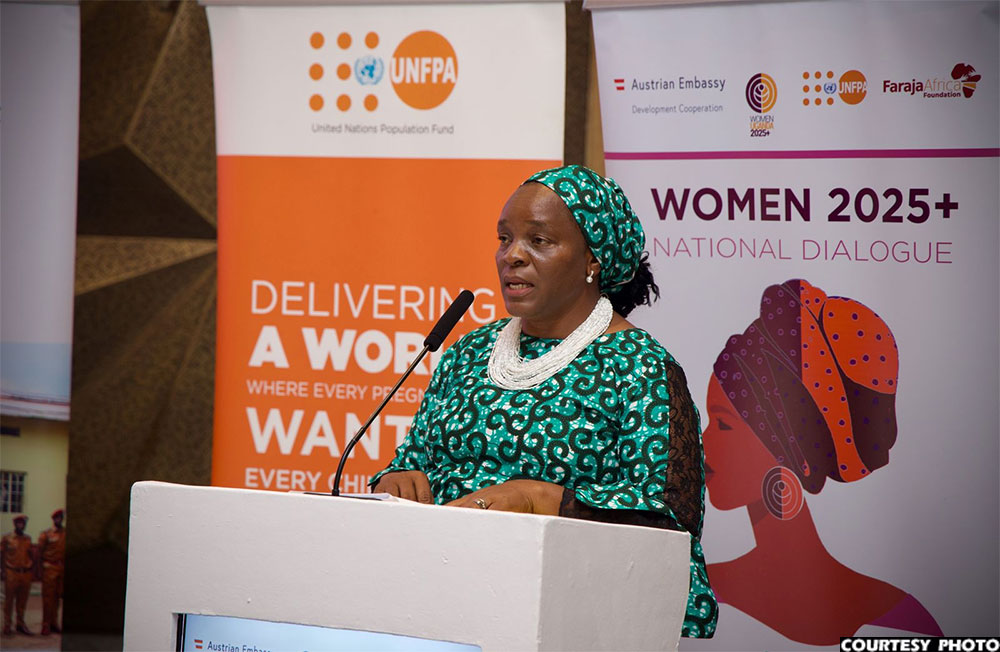
Minister Mutuuzo called for open dialogues in villages for harmful practices to end
The minister revealed that Cabinet is processing a paper to ratify the African Convention on Elimination of Harmful Practices and has allocated 84 billion Ugandan shillings to rehabilitate 1,000 parish halls for community dialogues.
“We will assemble men and women in every village to talk openly until these harmful norms end,” she vowed.
Deputy Chief Justice Flavian Zeija, who grew up in a single-mother household, said the fight is deeply personal. “Perhaps this subject is at the bottom of my heart because I was raised by a woman. My father died when I was in Primary Four, and sometimes I wonder—if it had been my mother who died, would I have been raised? Maybe, maybe not."
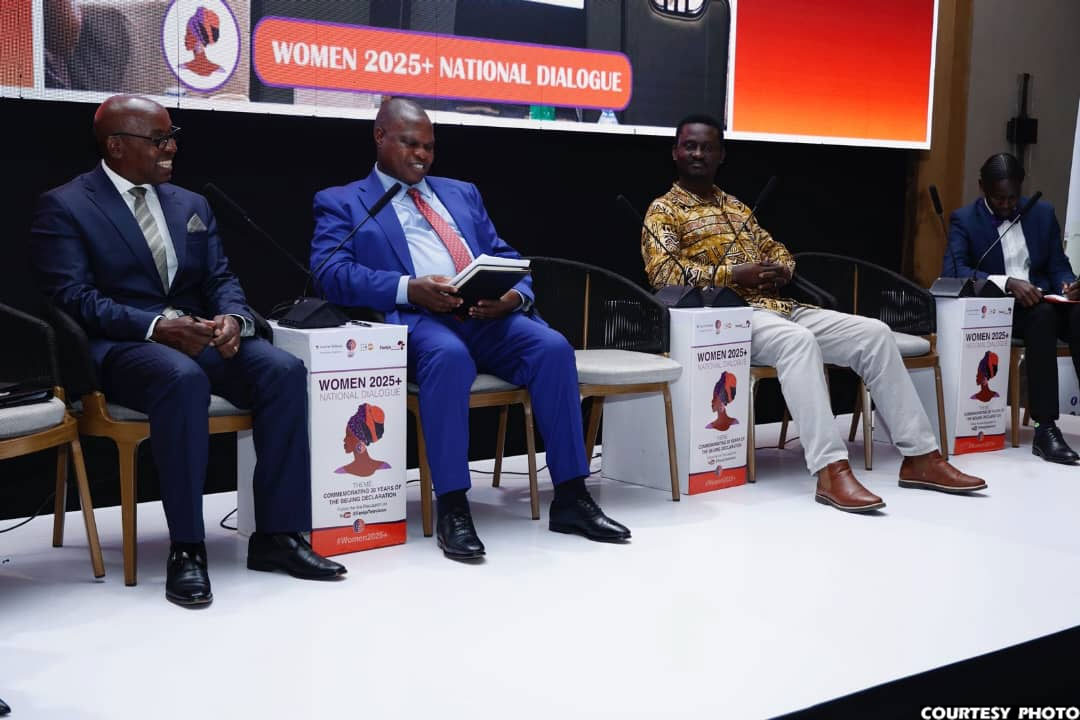
Deputy Chief Justice Flavian Zeija (extreme left) urged Ugandans to confront “historical power imbalances”
Zeija warned that violence against women “is not a distant problem".
"It starts right in our homes, neighborhoods, and communities, yet it continues to undermine the safety and dignity of Ugandan women and girls. It is not only a criminal matter, but also a violation of human rights, with far-reaching negative consequences on the socio-economic development of our nation," he said.
Drawing from court experience, the Deputy Chief Justice recounted a harrowing case of a two-year-old defilement survivor whose uterus had to be removed.
“When you retire home after listening to such a testimony, you start wondering, 'what if this was my daughter?'” he said. He praised ongoing work to create special courts for gender-based violence so that “if you commit an offense against women, it should be handled immediately”, preventing cases from collapsing due to delays.
Zeija urged Ugandans to confront “historical power imbalances” and empower women economically.
“A poor woman cannot even leave an abusive relationship. If you empower that woman—through education and resources—she will walk away, and that balances power in the home,” he said.
'Shared societal goal'
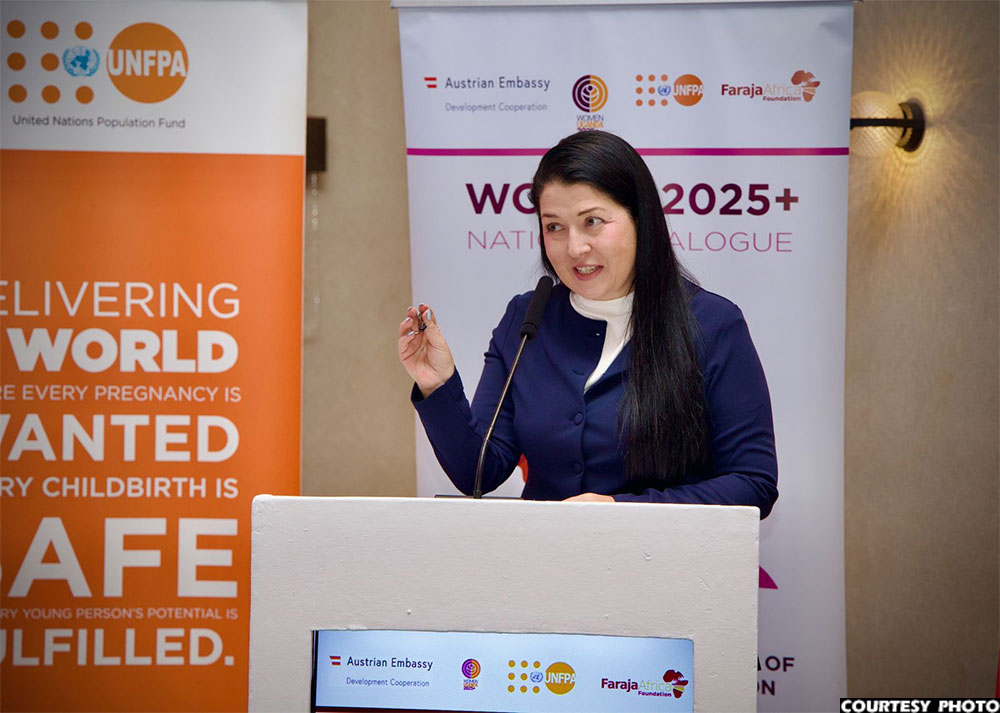
Dr Katja Kerschbaumer says gender equality is not the responsibility of women alone
Dr Katja Kerschbaumer, Head of the Austrian Embassy, opened the dialogue.
She stressed that “the single greatest hindrance to equality is the persistence of harmful social and cultural norms. Numbers cannot capture the reality of the girl forced into marriage, the woman denied land, or the survivor of violence whose voice is silenced.”
“This campaign is not a conversation for its own sake,” Kerschbaumer added. “Gender equality is not the responsibility of women alone, but a shared societal goal, embraced, practiced and celebrated by all. When women thrive, families prosper, communities flourish and nations grow stronger.”
She applauded Dutch Ambassador Frederieke Quispel for initiating the Women 2025+ campaign, which unites female heads of mission and male champions—including Justice Zeija—to challenge traditions that limit women’s potential.
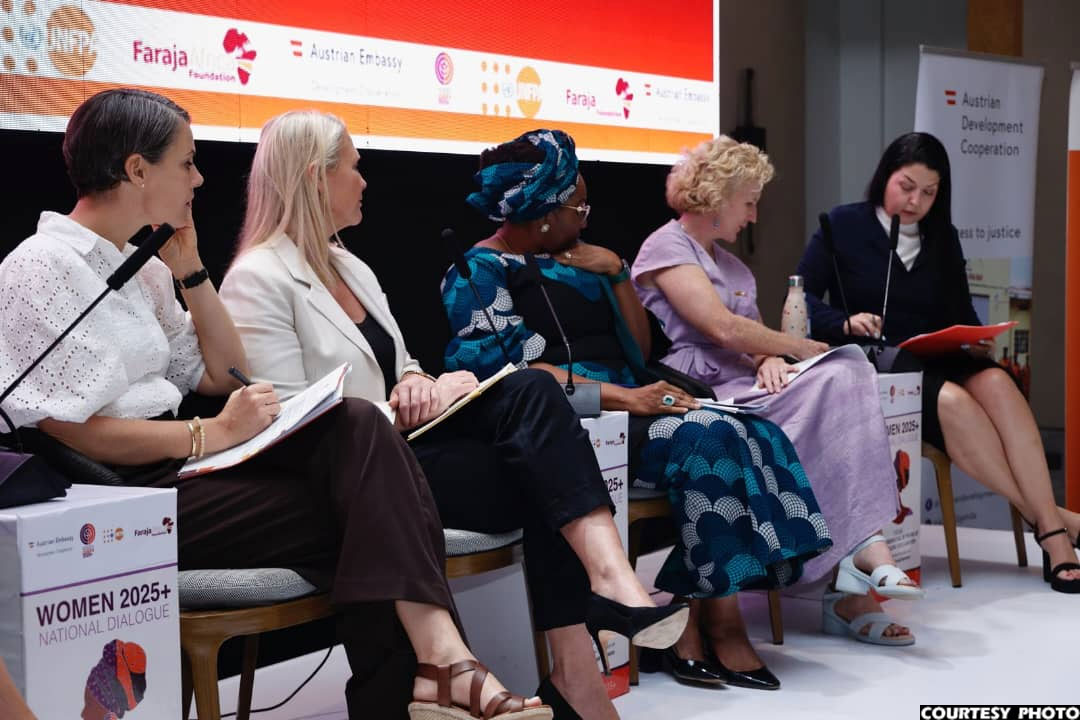
Mutuuzo closed with a call to action: “We need men who are role models and allies to gender equality and empowerment of women and girls. It is our collective responsibility to ensure that all women and girls attain their full potential and enjoy their rights.”
The Women Uganda 2025+ National Dialogue was convened by the Austrian Embassy, Faraja Africa Foundation and UNFPA Uganda.
It was themed: Commemorating 30 years of the Beijing Declaration, which was adopted by the United Nations at the end of the Fourth World Conference on Women on September 15, 1995.
The resolution adopted to promulgate a set of principles concerning the equality of men and women.
